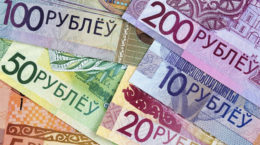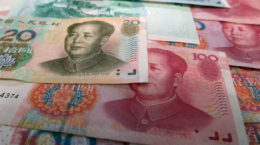Let’s speak honestly. Without hopes for 100500 billion EUR that the West will supposedly give us as soon as we get rid of Lukashenka to start a great life. Without hopes that somebody will give us the Khanty-Mansi AD when Russia collapses. Yet judging by the real state of our country and the whole region we live in.
We continue to examine different approaches that will allow to restore the growth of the Belarusian economy and give our country an opportunity to catch up with our far-advanced neighbours at an accelerated pace after Lukashenka and his “family” live the heights of power. In today’s article we are going to speak about several complicated issues at the interface of politics, interests of the state, economy and social system.
Today we are going to speak about some myths. Regrettably, there are several myths regarding the economy which are being exploited by both the regime and by its opponents. The essence of those myths is to “caress” the ego of the electors, to show that allegedly the economy of Belarus is highly advantageous, that our enterprises are developed, and that the whole world is just waiting for us to start trading with them. It’s just that for now it is going wrong for some reason, due to chicanery of you know who… (the answer here depends on the political views of the elector).
One of such myths is globalization of the world’s economy. Allegedly, the globalization that took place from the end of the 80s and till recently, was profitable for the USA only (and maybe Western Europe a little), and it is exactly the American economy which depends completely on global markets. However, now the process of deglobalization (regionalization) is going on, which is going to destroy America’s economic might.
Once again, that’s a myth. Contrary to popular belief about the US leadership in globalism (moral and economic), the objective statistical data suggest it’s not the case. Among the developed countries, the USA depends on import and globalization least of all. Therefore, deglobalization is not going to affect America. Real leaders in the process are China and other Eastern-Asian “tigers”. Even Russia depends on import and globalization more than the USA.
The world’s leading economy, the USA, is characterized by a relatively low rate of fixed capital accumulation (buildings, equipment, etc.) – 20%. At the same time, it is distinguished by a high share of household consumption in GDP – 68%, one of the highest in the world. Comparing this number with the ratio of exports and imports to GDP (12% and 15% correspondingly), one may draw a conclusion that the American economy is highly independent from imports, and for that reason it does not need any radical transformational reorganization. The country mainly imports raw materials, and exports high-tech goods with high added value.
Similar conclusions can be drawn for another developed “old capitalist” country, Japan, from the following data: share of household consumption in GDP is 58%, accumulation rate is 24%, ratio of exports to GDP is 18%, ratio of imports to GDP is 17%. Therefore, like the USA, Japan is in fact independent of imports (ratio of imports to household consumption is 29%), satisfying its demands by goods produced in the country to a significant extent and exporting high-tech products.
Let’s now look at China, which has conducted a wide-scale transformation of its economy in minimal terms with a bright effect of import substitution. The share of household consumption in GDP here is 40%; accumulation rate is 42%, ratio of exports to GDP is 20%, ratio of imports to GDP is 18%, ratio of imports to household consumption is 45%. Therefore, the country can be considered import-dependent. For comparison, here’s similar data for Russia: share of household consumption in GDP is 52%, accumulation rate to GDP is 22%, ratio of imports to GDP is 21%, ratio of exports to GDP is 26%. (The situation in Belarus is even worse, but it’s difficult to estimate it, as too much of statistical data is restricted or corrupted).
The second economic myth derives from the first one. Allegedly, now, when we refused to cooperate with the West, the idea is to trade with China, India and the third world. They will buy our goods, and Belarus will become rich, as it will not depend on greedy western capitalists anymore.
It’s a myth because the idea itself is a dead end. Practically, all we can sell is resources or very low-tech industrial goods. All that is bought eagerly, even in national currencies. However, the situation with national currencies is complicated, too, the liquidity of such an asset is questionable. For example, India pays us in rupees. What do we do with them?
Even if we suggest that right now, at this very moment, we launch high-tech production (something from the realm of fantasy), we will have problems anyway. For example, microchips. Where do we sell them? To Eritrea? Egypt? DPRK? They do not have the money to constantly make such purchases. It’s even more stupid to sell such goods to China and India, as we need to grow a lot and for a long time in order to reach their technological level, and we do not have investments to ensure such growth. Of course, we can sell in the domestic market and in the market of Russia, but there is an issue of a different kind: the purchasing power of Russians and Belarusians is steadily declining.
Certain economic growth of the Belarus of the 2000s was driven not only by the open Russian market and huge subsidies from Moscow. Let’s remember: Belarus was trading with everyone without exceptions. Now, if we take into consideration numerous sanctions, problems with payments and logistics, as well as selective approach to establishing partnerships, the future does not seem that bright. Isolation (including the self-isolation) leads to no good, while globalization, on the contrary, has already shown its efficiency.
Let us repeat it once again, since this myth is so popular and hard to kill. What is the problem with the idea that “the world is huge”, now we are going to buy up (or even manufacture) a large amount of equipment, then we use it to manufacture high value-added goods and sell them to the thrice tenth countries that will pay Belarus with their national currencies?
The problem is that the potential buyers are the countries of the third world, which are all raw material producing countries: it’s not that they don’t need the high-tech import, they just have no money to pay for it. More precisely, the amount of money at their disposal depends on the commodity super-cycle, and if the prices for the raw materials are low, they just do not have the money. (And when money does appear in those countries, local governments immediately lay hold of their own ideas of “import substitution”, just like those who are ruling Belarus). For investments into “technology and production” to be worthwhile, the demand should be not just huge, it should be persistent. The countries dependent on prices for their raw materials just cannot provide such demand.
As far as “deliveries for China” are concerned, do you really believe that China is going to buy “high-tech goods” from Belarus in the amounts that will justify the investments into their manufacture? Of course, the Belarusian industry might start manufacturing consumer goods, yet for now there are no indications of that. Besides, it has never worked before, so why should it work now?
The whole “Chinese-Korean economic boom” is a story how to become an “assembly and industrial site” for the countries of the First world. The idea to become an “assembly and industrial site” for the countries of the Third world, promoted by the Belarusian regime, is a so-so strategy.
A standing-aside myth (named after Prokopovich), very popular among the regime’s economists, is that devaluation of the ruble will help the Belarusian economy, if things turn real ugly. Before, in periods of crisis, devaluation of the ruble indeed supported strongly our economy; not the income of the population, but precisely the industry, agricultural industry and large-scale trading. Therefore, a lot of officials of the economic block believe that in the current conditions, weakening of the ruble can lead to significant positive effects.
However, it should be taken into consideration that the conditions in which the Belarusian economy is functioning now, have changed a lot. Repressions, the sanctions that followed, and now the war in Eastern Europe – all that has led to significant decrease in household consumption and decline in private sector investments. A situation arises when, on one hand, revenues of the consolidated budget are growing due to the devaluation, but on the other, the situation does not change drastically because of that. The devaluation premium, that the Belarusian economy and state budget were receiving in the past, is not being formed in previous amounts any longer in the face of constraints on foreign economic transactions.
Our House








